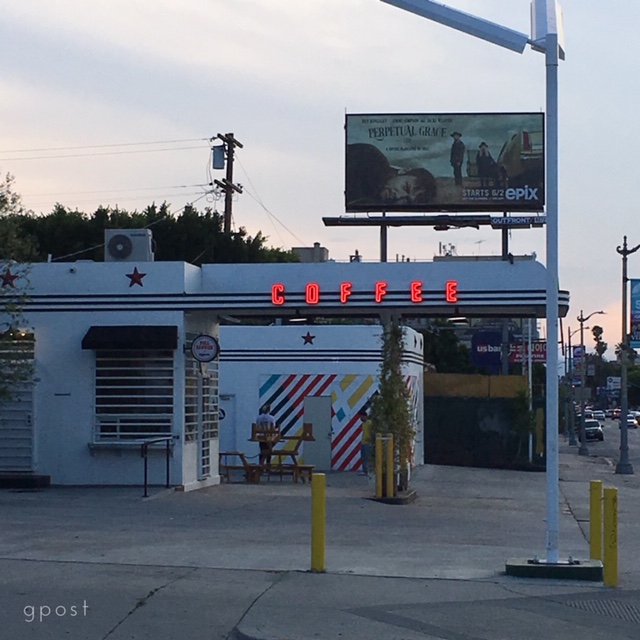
Hong Kong could still swallow the dragon.
A cover story in the Wall Street Journal today was called “Hong Kong’s Flickering Hopes.” “Flickering” because to Gerard Baker, the Journal’s “editor at large,” it seems inevitable that Hong Kong’s rule of law and civic traditions—it’s utterly unique experiment in Asian democracy—will eventually be swallowed by the giant that surrounds it.
On the other hand, I think it’s far from inevitable.
Over the past month, millions of residents have taken to their City’s humid boulevards to protest an extradition proposal that would allow China’s resident proxies to arrest anyone in Hong Kong that it wants to, extradicting them to “justice” in the motherland—a “chilling effect” on critical thinking and democratic expression. But why I wonder isn’t the personal witness of millions of Hong Kong Chinese a ray of hope instead of a glimmer on the road to subjugation?
Hong Kong could still confound us because, despite having the hottest, wettest and least hospitable climate for masked protest I can imagine, millions of its citizens took to the streets to voice their dissent about this latest erosion of their rights to speak, assemble and disagree. Despite sweat and dehydration, pepper spray and water cannon, they have also managed to protest peacefully so that their resounding “No” conveyed a Confucian depth of confidence and resolve. Constructive instead of destructive.
On the other hand, and demonstrating even more of their British influence, the Hong Kong Chinese have talked and written their rationales for “No” everywhere that they could find a platform for doing so—patiently, painstakingly and exhaustingly—although the meat of their dissenting opinions has received little attention in the press. And finally, the City’s residents have sketched out futures that are not merely a return to the status quo that existed twenty years ago but instead are thoughtful re-workings of Deng Xiaoping’s “One Country, Two Systems.” Despite a divergence of details, their over-arching visions have one thing in common. All imagine a unified China that’s built around the pounding, life-giving heart of Hong Kong today.
Will (1) their acts of dissent; (2) the personal risks that have been taken by, and moral commitment of these dissenters; together with (3) their hopeful vision of a “different and better outcome” persuade the billions of non-Hong Kong Chinese to reconsider their acquiescence to “the Great Firewall,” the desirability of “good citizenship scores,” and the subjugation of a total surveillance state for something more like what these dissenters have in mind?
Could Hong Kong swallow the dragon?
One thing is absolutely certain: the steady, confident voices of Hong Kong’s Chinese dissenters are not falling on deaf ears. There are more than a billion of them, listening or trying to listen.
(In case you don’t recognize it, the image above is of Tankman, a sole protester confronting Chinese state power in Tianamen Square, 1989. The power of dissent. The power in a picture. Inviting us to imagine being that solitary Chinese man.)

1. Take a Sad Song and Make It Better
To all of you: I promise to get off this horse soon, I do, but there is a West Coast echo in this story of dissent too.
California, which is also the home of Silicon Valley, passed the toughest data privacy law in the US last year. (Its prohibitions and sanctions will go into effect at the beginning of 2020.) By giving individuals a way to protect themselves from the predations of surveillance capitalism, California’s leaders expressed their dissent from the silence and/or inability of our national representatives to do the same. Disappointingly, the same non-response has come from most other state governments too.
I’ve railed about data privacy repeatedly here because our personal information is being taken without our informed consent and used in ways that track us like animals (“These Tech Platforms Threaten Our Freedom”). I’ve argued that exchanging our personal data for “free” social networks like Facebook’s and “free” search engines like Google’s eliminates sources of potential income in a changing economy (“Blockchain Goes To Work”). And I’ve at least begun to make the case that theft of our personal data undermines our personal autonomy (“Whose Values Will Save Us From Our Technology?”). There are important issues here, and outside of a few leading jurisdictions most policymakers have been neglecting them.
“Leading jurisdiction” is lawyer-speak for “being in the vanguard” or “a dissenter from the prevailing view.” These places have tired of everyone else’s silence on an issue of importance that demands attention. They have talked about the values that drove them to raise their voices, and have painted a picture that speaks to how the future will be better—or at least more manageable—than it is today with their new laws or regulations on the books. They’re holding up their end of the conversation by trying to get their fellow states and the rest of the nation engaged in it.
California lawmakers passed a data privacy bill in 2018 that, among other things, includes an expansive definition of what constitutes personal information, gives the state’s consumers the right to prohibit the sale of their data to third parties, and also allows them to “opt out” of sharing their personal data altogether. It’s common for a new law’s effective date to be a year or more later to allow all parties affected to prepare for its various impacts. As interesting as anything about California’s recent action in support of data privacy has been Congress’s re-action.
According to a news report today:
House Minority Leader Kevin McCarthey backed the idea of national legislation to safeguard consumer’s data privacy, adding a prominent GOP voice to the bi-partisan support in Congress for tackling how technology companies amass and use that information.
‘There needs to be national-level regulation, not state-by-state on what we’re going to do about privacy,’ Mr. McCarthey, a California Republican said in an interview…
A data privacy law passed last year in California helped spur action from both Mr McCarthey and a bipartisan group of lawmakers working on privacy legislation in the Senate.
As a result of California’s commitment and template for action, Congress is wrestling with its divisiveness and dysfunction to pass a federal data privacy law that will go into effect before California’s to avoid a patchwork of regulation. From one vantage point, it’s like how many clowns can get in the phone booth before the bell goes off. But from another, more serious perspective: where would Congress be today on data privacy if a leading jurisdiction like California had failed to act?
A similar dynamic is currently at play involving state laws (like California’s again) that are aimed at reducing the likely causes of climate change. The impact on state residents of actions like this are immediate and direct, but the impact doesn’t end there. According to two scholars who have studied public opinion around climate change, those who have not bothered to act are also reluctant to be left behind. This is from another recent post:
Egan and Mullin cite research that proves ‘the very strong correlation between state policy and public opinion’ and argue that states like California and New York are already influencing the national policy debate by acting alone. While the authors don’t say, I’d argue that it’s harder for fence-sitters on climate change to continue to remain uncommitted when majorities in other states are investing their tax dollars in targeted policies. Those ‘watching but not yet acting’ are also susceptible to committing more deeply if the advocate they’re listening to avoids the partisan bloodletting while persuading them with arguments that have already succeeded in these vanguard states.
When a commitment is grounded in values and acted upon (by speaking up, passing a law, taking any kind of objective step) to help realize a better future for everyone, others in the room, state or nation are more likely to be mobilized to define their own positions, to move the conversation forward, and sometimes to reach a new consensus than would never have been possible if those in the vanguard hadn’t taken a stand for their beliefs. in the first place.

2. Taking a Stand Is Like Playing Jenga
Kids love the game Jenga. Many adults do too.
To play, you begin with a vertical rectangle of interlocking wooden pieces that are slotted in to create a stable structure. In each successive turn, a player attempts to remove one of the slotted pieces without destabilizing the structure and causing the remaining pieces to crash into a heap on the floor.
I’m convinced that the sound explosion of crashing pieces is key to enjoyment of the game. When you lose (or win), you do so shatteringly. There is no question that what you did made a difference.
The Tribeca apartment building above looks like a Jenga tower after—in mid-game—removal of some of the pieces has caused others to move and jut out a bit from the sides.
To harness the metaphor: the original Jenga tower is where prevailing opinion always starts. The room/community/state/nation is for something or against something. Then, in each successive turn, dissenters (along with the other players) modify the prevailing view.
Dissenters, leading jurisdictions, those who can’t keep their convictions to themselves are the key pieces that get removed. Every time they “make their case,” other pieces in the Jenga tower are impacted. Sometimes you can actually see their affect, because certain pieces jut out a little or a lot, their minds visibly beginning to change. Other times the change is imperceptible, but some pieces in the pile have become less stable as their original certainty has been clouded by doubt. Eventually, as the monolith begins to teeter, the moment of truth arrives and one final player’s testimony makes the original certainties dissolve.
Anyone’s turn can shatter the stability or inertia of the prevailing view.
Everyone’s turn affects other pieces either perceptibly or imperceptibly.
Anyone’s dissent can make the original certainties come crashing to the floor.
Anyone’s action can cause the crash that finally allows a different, better future to be built.
Dissenting voices like these are never as lonely or futile as they seem.
And they never fall on deaf ears.
This post was adapted from my June 23, 2019 newsletter. When you subscribe, a new newsletter/post will be delivered to your inbox every Sunday morning.
Leave a Reply